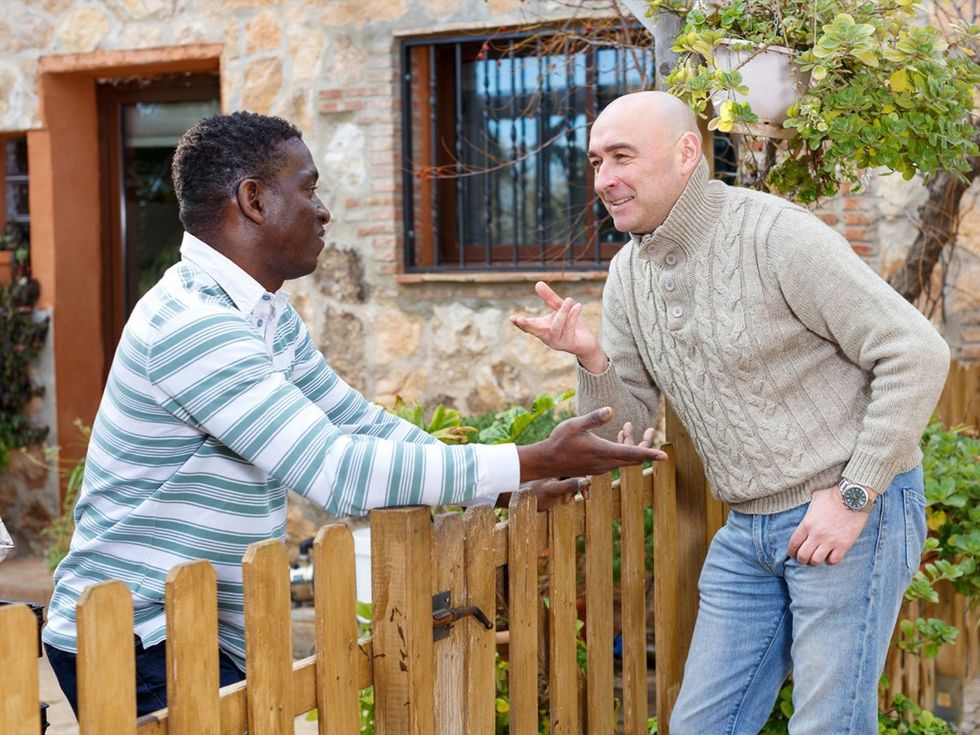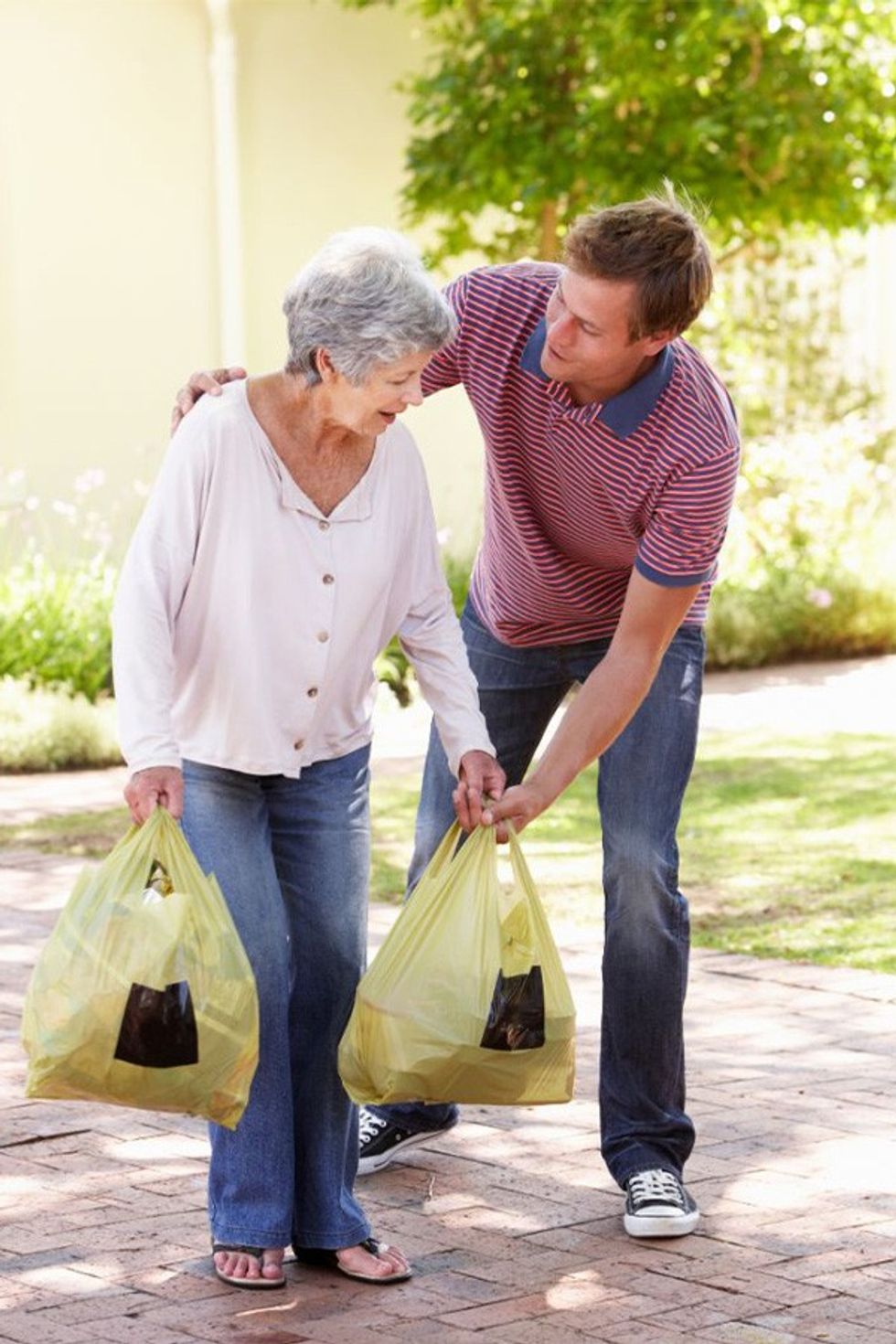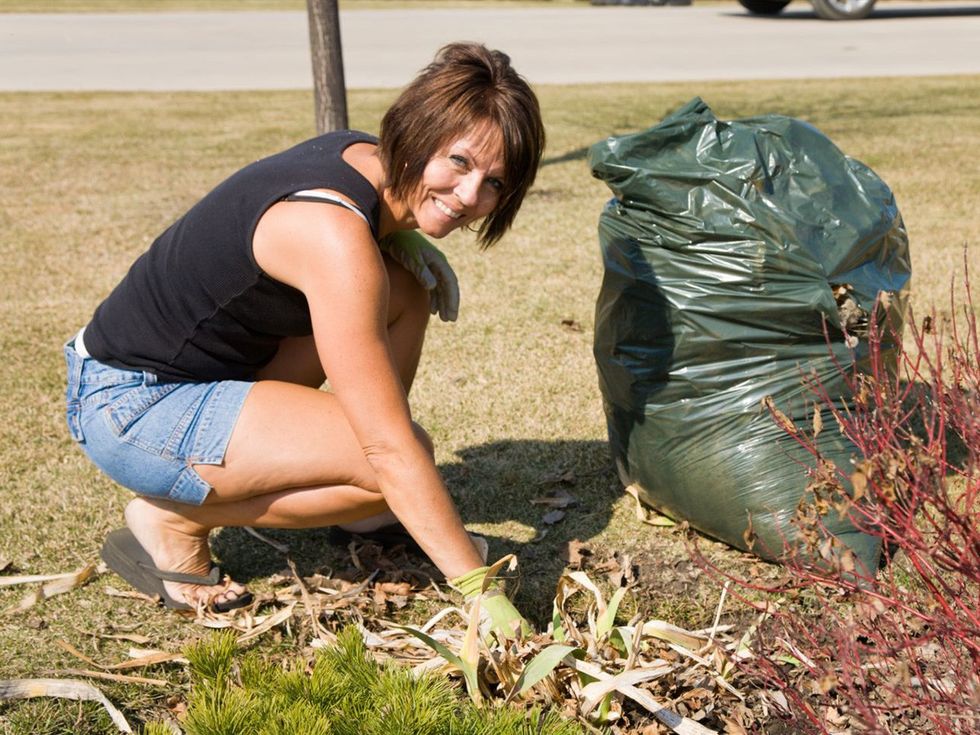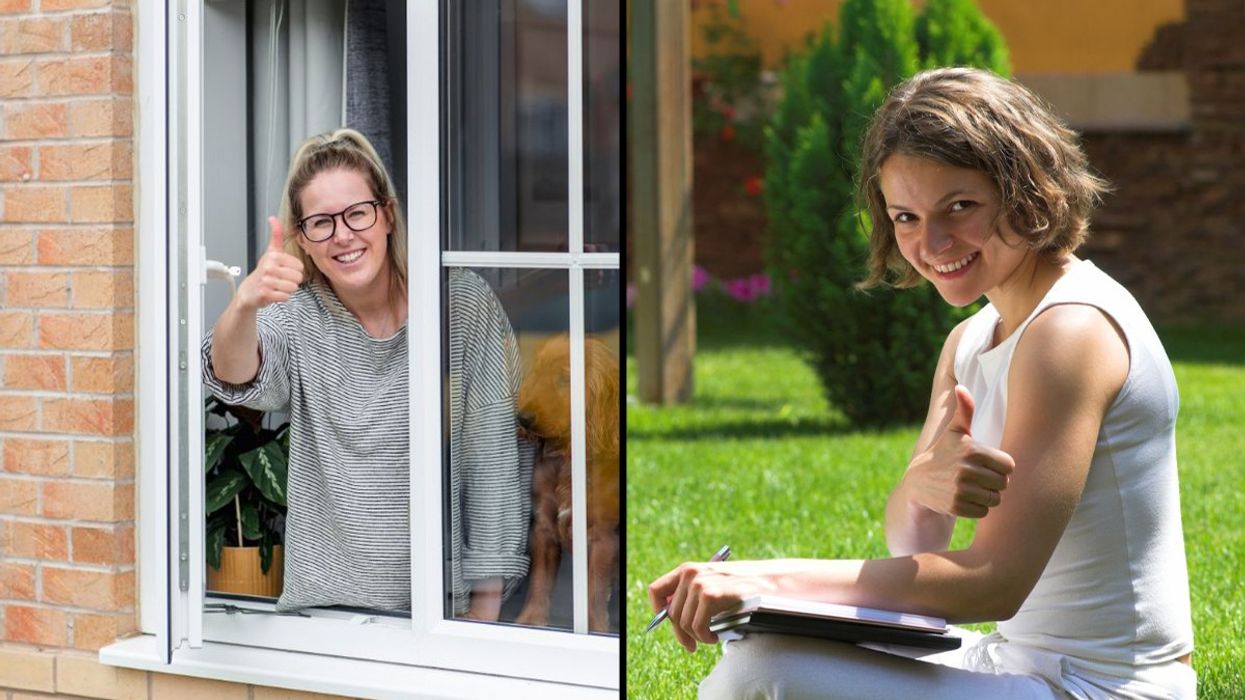Everyone has at least one neighbor who's a little more challenging than the others. Maybe they're a bit nosy, inconsiderate, or just unagreeable. A reader shared a difficult neighborly correspondence with an advice column called Miss Manners on AL.com. Their complaint was about "a neighbor who texts me on a fairly regular basis, asking me for all kinds of different things--usually food items." The column's simple advice was, "If you take a long time to respond to these texts, she will stop sending them."
Sometimes it can be difficult to find the simple solution to fitting in with your neighbors. Everyone has a different personality, and nobody can really control the behaviors of a neighbor. The best solution to dealing with neighbors might just be to become the best neighbor you can be, for as little work as possible.

These are five absolute bare minimum habits that make you a good neighbor:
Good neighbors can always be aware

Nobody has to move through their neighborhood like a circling security camera. However, people can be aware of anything out of the ordinary. Being aware also means acting courteously with behaviors like driving slowly, trying not to blast your car's headlights through someone's window at night, and generally recognizing your neighbors with kindness. Sometimes neighbors can have toxic or volatile relationships within their home. Providing a kind ear and a safe place to talk is good neighborly behavior. Giving assistance and supplying links to resources, if wanted, is the thoughtful thing to do. A 2022 study of 27,797 participants published in the National Library of Medicine found neighborhood social cohesion had beneficial effects on cardiovascular health. Simply, being a better neighbor is not only good for the mind, but also for your physical health.
Good neighbors want to be helpful

It's totally fine and quite normal to isolate away in your home some of the time. But sometimes a neighbor might need a ride somewhere. Perhaps there's a medical emergency. Sometimes there might be a small maintenance issue, and you know just how to fix it. Being of service to your neighbors is a great way to build trust and self-esteem. The National Library of Medicine published a 2022 study that found support is a two-way street. Neighbors who both offer help and receive it in return build stronger connections and create a community where everyone can feel supported.
Good neighbors are willing to share

Think of your neighbors when selling or donating items. Maybe they could benefit from things you no longer want or need. Perhaps you have some discounts through work or passes to an event you are unable to attend. Offer these possessions to neighbors instead of just throwing them away. If someone is having some financial difficulties, you could bring them groceries or offer to cook them dinner. The University of Washington shared research from a 2025 study that when neighbors share critical resources like food, transportation, and medications during a disaster, individual vulnerability dropped significantly. Strong social ties in a community nearly eliminate shortages and essential needs.
Good neighbors are aware of grievances

When listening to the concerns of your neighbors, try to find common ground. Disagreements are normal for everyone. An angry person is not an agreeable person, and learning how to navigate intense emotions benefits everyone. Megan McConnel, a licensed therapist at Inner Abundance Counseling PLLC located in Denver, Colorado, told GOOD, "Sharing space is hard, and tensions will likely arise at some point. If you are the one with the grievance, approach your neighbor directly first before taking a step like contacting law enforcement. Assume good intentions and phrase your issue and requests kindly but directly. If a neighbor approaches you with a grievance, try to listen non-defensively and work collaboratively to identify solutions." If you're going to live next door to these people, better to have a challenged relationship than an outright toxic one.
Good neighbors are mindful of their pollution

This is about as basic as it gets for being a decent neighbor. Avoid creating excessive noise. If you play music or are renovating your home, try to be mindful of the time and volume. Also, clutter can be quite the eyesore. Maintaining your yard and garbage as best you can is always appreciated. The better you can do this, the less likely you will fall into the "grievance" category. A 2021 study in Science Direct found that clutter leads to increased stress, anxiety, and feelings of disconnection. Not only do these emotional disturbances affect your neighbors, but also you. Nobody behaves their absolute best when emotionally disturbed.
Life brings many challenges, particularly when it involves other people. When we have neighbors, we have the opportunity to build friendships and bonds that not only benefit ourselves but also the community. If there is an option between enjoying a thriving and healthy neighborhood versus an aggravated, lonely one, doing even the minimum habits of a good neighbor will yield a better experience.


















 Leonard Cohen performs in Australia in 2009.Stefan Karpiniec/
Leonard Cohen performs in Australia in 2009.Stefan Karpiniec/  Enjoying a sunset.Photo credit
Enjoying a sunset.Photo credit 
 An envelope filled with cashCanva
An envelope filled with cashCanva Gif of someone saying "Oh, you
Gif of someone saying "Oh, you
 Two penguins play by the waterCanva
Two penguins play by the waterCanva
 Counterintuitively, social media can make you feel more bored and lonely.
Counterintuitively, social media can make you feel more bored and lonely. Talking about what you’ve read can add a social dimension to what can be a solitary activity.
Talking about what you’ve read can add a social dimension to what can be a solitary activity. 
 A flight attendant closes the overhead binCanva
A flight attendant closes the overhead binCanva Gif of Larry David trying to put his luggage in overhead compartment via
Gif of Larry David trying to put his luggage in overhead compartment via 
 Dog owner pets their dogCanva
Dog owner pets their dogCanva Gif of a sad looking pug via
Gif of a sad looking pug via 

 A car with LED headlightsCanva
A car with LED headlightsCanva